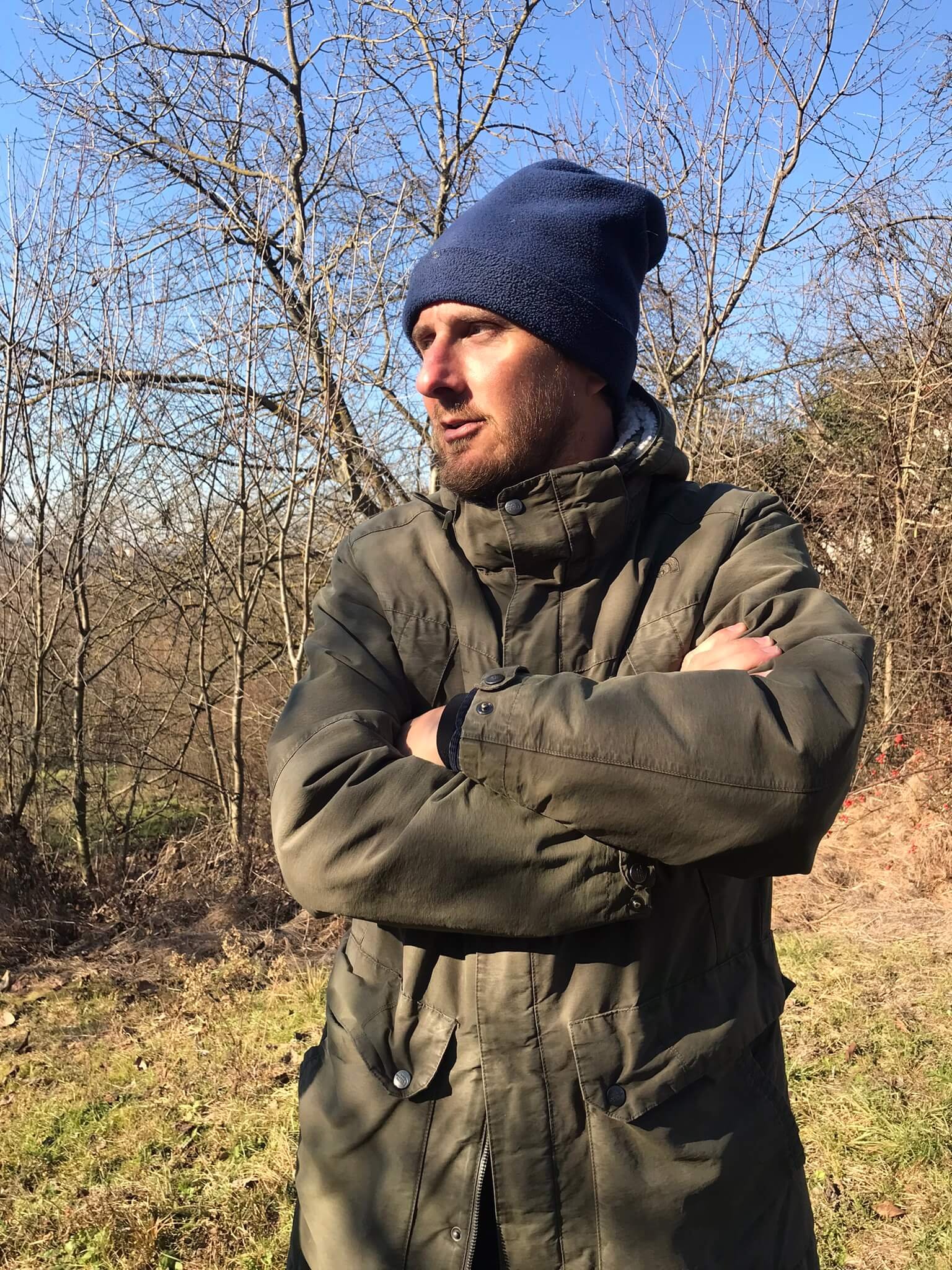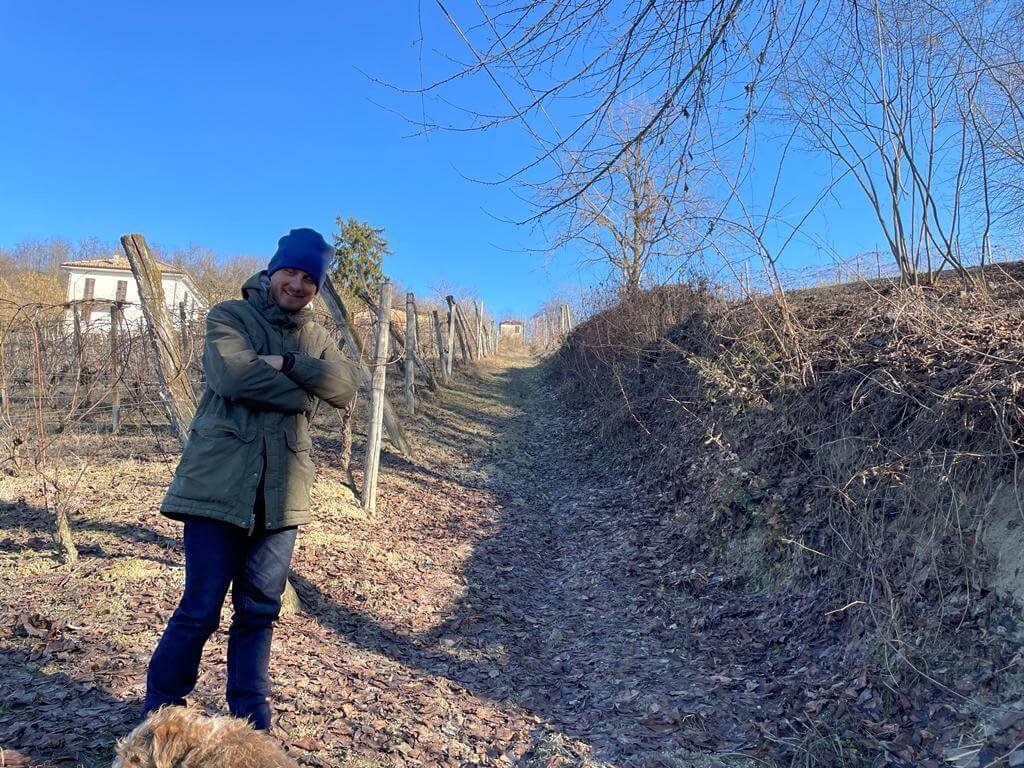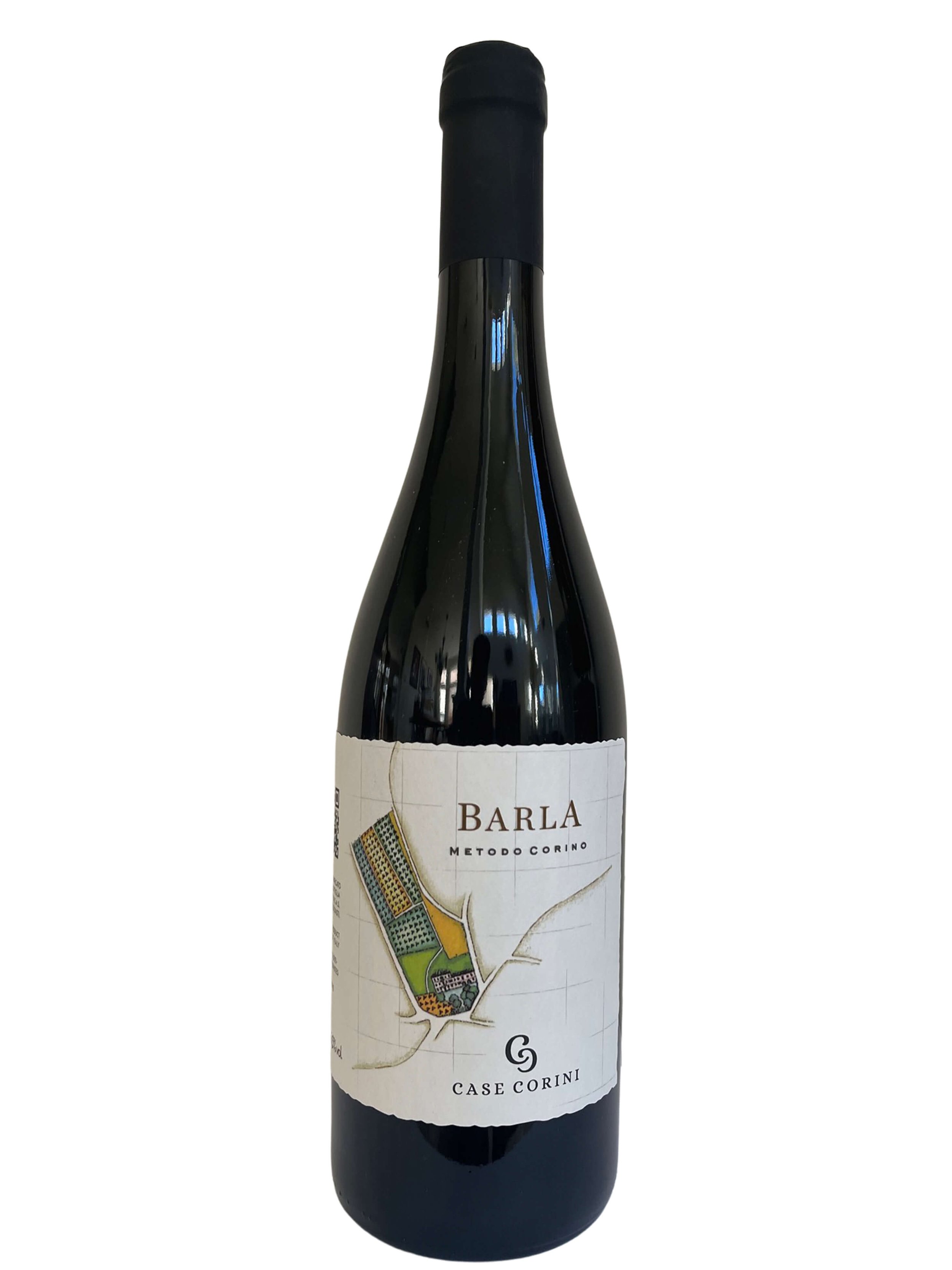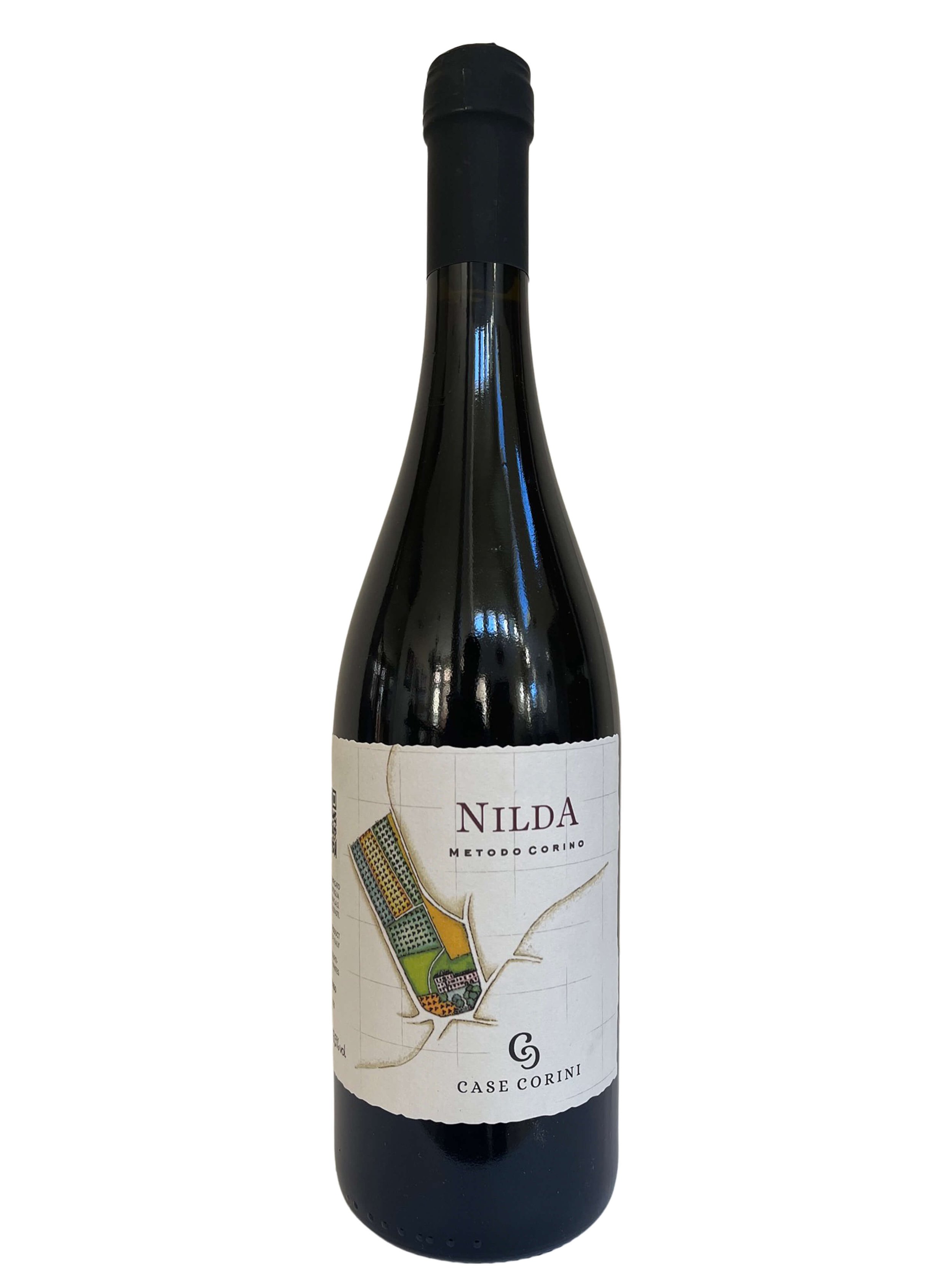The 6th Generation of Natural Wine Growers Takes the Helm
Opening a bottle of wine is a simple operation. So simple, in fact, it is easy to forget where it comes from: the vineyard. However, that is something never far from mind for the family run winery, Case Corini.
After the passing of their father, Lorenzo Corino, in November, siblings Guido and Luisa Corino have officially taken the helm, after having worked ‘behind the scenes’ with their family’s farm and winery for many years. We took the opportunity this week to spend a day with Guido at their homestead and winery in Costigliole d’Asti, Piedmont, Italy, to reflect on his family’s farming and winemaking philosophies, history, and the future of Case Corini.
Guido Corino, Lorenzo Corino’s son, at their family’s estate winery, Case Corini.
Throughout the day of vineyard hiking, wine tasting, and casual conversation, Guido searched to put into words the innate philosophy his family instilled in him, and that he wants to preserve; after all, he and Luisa are the 6th generation of Corino family vignerons, a winemaking family who, through each generation, have passed on sustainable and regenerative farming practices, and who were primarily taught their winegrower craft by their father, Lorenzo Corino, who practically dedicated his life to viticulture research and preserving our earthly heritage as much as possible, amidst the risks and damage introduced by ‘modern, conventional’ farming practices.
Over coffee in the morning, he shared that his family believes ‘sustainability is more than simply not using chemicals or pesticides. It is how you live with and work the land: it is not using all the land, but parts. It is knowing when to let the land rest and giving yourself enough room to do so.’
Guido Corino shows the real-life results of the farming practices of the Corino family (on the right) and traditional practices (on the left).
Later, hiking through the vineyards, he went on, further clarifying. ‘People nowadays, especially in this area with so little free land, can become overly protective and attached to their land. But the dirt is theirs for only a brief amount of time, considering the length of the history of this land and its future. It’s worth considering who will be caring in the future for the land.’
In fact, sometimes, this over-attachment can lead to conventional farming practices that allow this precious dirt to be literally carried away. Guido took us to a special part of their vineyards (see above photo) and explains, ‘this road is amazing, it shows you the difference we can make. Years ago, these two vineyards (on the left and right of the road) were at the same elevation, they were the same height. Do you see the changes and loss?’ From this vantage point, seeing the conventionally farmed, weed free and clean, vineyards on the left so much lower than Case Corini’s vineyards (on the right) with natural grasses and plants sprouting up amongst the vines, is an impactful moment.
6th generation farmer, Guido Corino, works with his family’s vines.
Stopping momentarily in the vineyard, he kneels down at a vine to inspect the dirt. Picking up a handful of grass, twigs, leaves, and the dirt underneath, he talks about all of this organic material protecting the dirt from too much run-off, and becoming a natural mulch for the land. Dotted occasionally in the rows of vines are empty holes. Guido explains these are where, in the spring, new vines will be planted; the holes are dug in the winter to allow the dirt to rest. In fact, one sees plainly, instead of a pile of hard dirt-clods and rocks, the dirt is rich and soft. This is all part of his family’s philosophy of patience, and as we will see later, the belief of taking time to do things in the right way.
As he walks, Guido lightly touches the vines and says, ‘Vines have a memory. They have the ability to retain sometimes 50 years of past seasons and climates; they can understand and memorize previous years. Above all, in old and historical vineyards, they are born with existing knowledge of the land.’ For this reason, Case Corini cherishes old vineyards and goes to great length to maintain them. The use of American rootstocks are a necessity to the area (thanks to phylloxera), but rather than grafting in a greenhouse and planting the grafted vine, Case Corini instead plant un-grafted ‘wild vines’ based on the American rootstock. Once the roots are well set and have grown, sometimes even after several years, they will graft directly onto the rootstock in the vineyard, their chosen vine selected from their favorites in their existing vineyards. This, as Guido explains, allows the vines to start growing with as much of this ‘terrain memory’ as possible.
Starting from the Beginning…
As mentioned earlier, the Corino family have been farmers for now 6 generations; the family home, perched on a hill outside of the town of Costigliole d’Asti, was built in the 1800s. Going back even further, Guido remembers his grandfather, Pierino, who really started to teach him the fundamentals of natural farming. He taught Guido (and earlier, Lorenzo) to respect the land. Guido says his grandfather taught him quips, such as ‘Every action generates reactions in more than just the material you are working with.’
He went on to explain, ‘Tilling the ground is more complicated than just turning the dirt. When do you till? Using what, tractor or by hand? How much, too much or too little?… To have patience and wait for the right moment and work the land in the right way is crucial.’ Guido’s grandfather Pierino briefly left the family home to move his family to Torino, but found himself drawn back to the countryside and land of Costigliole d’Asti during WWII as a way to escape the danger of bombings. He took over the land and became the family farmer, or contadino. Pierino continued to work with bue, or oxen, and Guido’s father, Lorenzo, inherited an old-fashioned farm, founded in the traditions of generations of farmers. Lorenzo continued and carried forward these beliefs as much as possible.
The view of the Alps and Mon Viso on a winter day from the vineyards of Case Corini in Costigliole d’Asti in Piedmont, Italy.
‘My father was wonderful and loved to write about traditions and history, all while explaining it scientifically.’ As Guido continued to explain, many of the practices at Case Corini are things done for generations, intuitively by local farmers; Lorenzo’s passion and dedication was trying to find the scientific reason to explain why those practices worked. A way to distill into scientific and biological principles the innate knowledge passed down from father to son over many generations. As well, Guido recollects, his father had a knack for creating and maintaining ‘human contact and relationships’ with all that extended beyond the normal work-based relationships.
Wine Connects People… and Passions
Not unlike other Vero producers, Guido’s love for his land, farming, and winemaking is evident very quickly. While the conversation may shift from topic to topic, it always comes back to agriculture and wine. ‘The wine world is a beautiful one,’ says Guido, ‘That is why I love it and grew so passionate about it. I was brought in bit by bit with time.’ However, Guido feels it is important for him to also keep everything in perspective: ‘I feel that if it were to become a job, to become work, it could be difficult to keep the passion alive. For me, once it becomes industrial, it would lose that spark.’ As his father believed, wine accompanies people, memories, and meals; it is not necessary for life. While true, wine is neither food nor water, it occupies a unique place between ‘need’ and ‘desire’, and like much else, part of its beauty comes from exactly that: sometimes something clicks and loses its passion and fun when it becomes a ‘I must’, rather than an ‘I get to’ or ‘I can’.
Guido with one of the vineyard cats, Tappo (Italian for cork).
Continuing on the Natural Path
After Lorenzo’s passing in November 2021, Guido and his sister Luisa never wavered in picking up the reins of Case Corini from their father. Guido says, ‘I am not worried about production; my father taught me well. In fact, I am looking forward to it. Farming and winemaking is constantly changing, and I am interested in changing year to year with the variations and flux.’ He acknowledges, however, that continuing his father’s work and dreams of further agriculture and sustainable research will be more of a challenge: ‘I don’t have my father’s background of agricultural research, I will have to see going forward a bit at a time.’ His sister, Luisa, is considering and interested in making sure Lorenzo’s catalogue of research is well documented and available to help carry forward his legacy and ideals. Lorenzo’s passing and Covid-19 has slowed down personal visits to the winery, but Guido hopes that will pick back up, as he has seen so many wonderful people, especially in the last 10 years, that have come to learn and search for something else other than conventional practices.
For the same reason Guido is excited for the ever changing future of Case Corini, we are excited to taste and share their future wines. Natural wines are just that: natural. They are the true expressions of the vintage, and opening every bottle is an adventure.
Start your adventure, and taste the Corino family’s natural wines:
Achille, from a 70 year old nebbiolo & barbera vineyard, with 2 vintages available: 2016 & 2018
Barla 2016, made from a 100 year old barbera vineyard
Centin 2016, from a 70 year old nebbiolo vineyard
Nilda 2019, made from a field blend of mostly barbera and about a 10% mix of dolcetto, uva rara and vespolino
Taste for yourself the natural land of the vineyards, and the passion of the Corino family.









